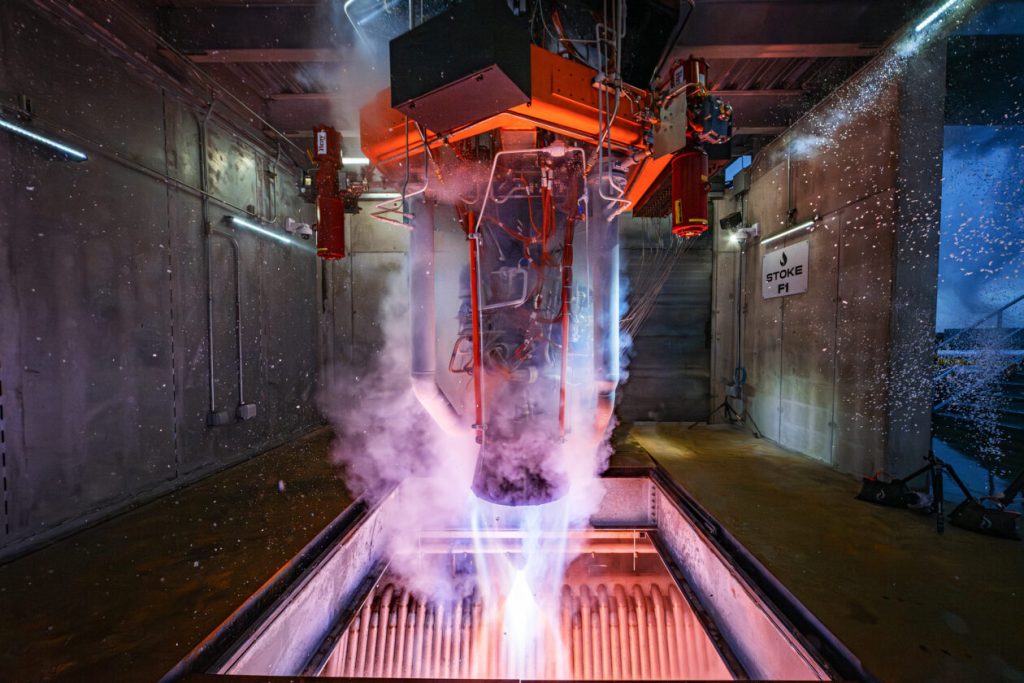Summarize this content to 2000 words in 6 paragraphs
Stoke Space’s rocket engine test lights up a vertical test stand in Moses Lake, Wash. (Stoke Space Photo)
Kent, Wash.-based Stoke Space says it’s raised $260 million in a new founding round to finish the development of its fully reusable Nova rocket and complete construction of a launch complex in Florida.
Investors in the Series C funding round include Bill Gates’ Breakthrough Energy Ventures, Glade Brook Capital Partners, Industrious Ventures, Leitmotif, Point72 Ventures, Seven Seven Six, the University of Michigan, Woven Capital and Y Combinator. The fresh investment brings total funding to $480 million.
“We deeply appreciate the confidence investors have placed in Stoke and our mission,” Andy Lapsa, CEO and co-founder of Stoke Space, said today in a news release. “This new investment validates our progress and enables us to accelerate the development of technologies that will redefine access to and from space.”
The funding round comes just weeks after Stoke’s successful test firing of its first-stage Zenith rocket engine on a test stand at the company’s facility in Moses Lake, Wash. That hot-fire test of the full-flow staged combustion engine marked a significant step in the development of the two-stage Nova rocket, which is slated for its first orbital test flight as early as this year. Stoke tested the technology for its second stage in a brief up-and-down flight in 2023.
Meanwhile, the company is building out its launch facility at Space Launch Complex 14 at Cape Canaveral Space Force Station in Florida, the place where John Glenn’s milestone orbital flight began in 1962. The new funding round will support that work as well as enhancements to Stoke’s Kent headquarters and Moses Lake test facility.
Stoke’s vision is to create a fully reusable medium-lift rocket that would fill a niche alongside SpaceX’s heavy-lift Starship launch vehicle.
“Rapid and reliable reuse of a rocket’s upper stage is the last big challenge to solve before mobility to and from space becomes akin to other forms of transportation,” Lapsa said. “It represents a significant inflection in the space economy, and in turn opens the door to an incredible set of business opportunities that make life more vibrant on and off Earth.”
Previously: Stoke explores innovative route to rocket reusability


